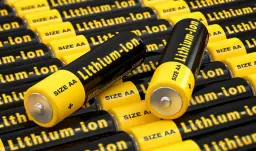Chinese Ambassador to Zimbabwe, Zhou Ding, stated that Zimbabwe currently lacks the capacity to produce battery-grade lithium, despite possessing significant lithium reserves. Zimbabwe holds some of the world’s largest deposits of hard rock lithium, a crucial mineral for clean energy technologies.
Speaking during a breakfast meeting in Harare, Ambassador Zhou Ding highlighted the challenges faced by Zimbabwe, which hinder its ability to fully capitalize on the benefits of the lithium sector.
China fully supports the Zimbabwean government’s vision for value addition and low-carbon development through the expansion of the mining industry, particularly in the lithium sector. However, Rome was not built in a day.
Zimbabwe may face some challenges in developing battery-grade lithium in the short term. First, some main raw materials, such as sulphuric acid for making battery-grade lithium is dependent on imports with high costs.
Lithium processing is highly energy-intensive, insufficient power supply and high electricity price constrained the production of battery-grade lithium. Third, in the long term, Zimbabwe’s new energy industry may face competition from neighbouring countries, such as South Africa, Zambia. Therefore, further investing in the new energy mining in Zimbabwe needs more in-depth market research and relevant support measures.
Despite Zimbabwe’s possession of significant lithium deposits, the country has primarily focused on mining petalite, a form of lithium used in ceramics, aluminium smelting, and glass production, through Bikita Minerals since the 1950s. However, in recent times, Chinese mining companies such as Zhejiang Huayou Cobalt, Sinomine Resource Group, and Chengxin Lithium Group have made substantial investments totalling $678 million in acquiring lithium mines and projects in Zimbabwe.
During the event, Suston Muzenda, the chief director of the Transport Ministry, highlighted the challenges faced by the transport industry in Zimbabwe. He emphasized the struggles caused by limited accessibility and high operating costs. Muzenda stated that the government aims to address these issues by promoting e-mobility as a potential solution to the transportation crisis.
Muzenda said the current landscape of the transport sector hinders the competitiveness of local products and poses difficulties for vulnerable communities, both in urban and rural areas. He added:
It is clear that we require a transformative solution and that solution lies in embracing e-mobility — the adoption of electric vehicles and the development of a sustainable transportation ecosystem.
Zhou Ding’s remarks come less than a week after the Harare Institute of Technology (HIT) in Zimbabwe announced that it had made significant progress in the production of lithium batteries for passenger vehicles, the state-run Chronicle reported. This breakthrough has the potential to accelerate the country’s involvement in clean energy technologies. HIT said it had successfully purified lithium phosphate and manufactured prototype cells, marking a significant step towards commercial production.
The university’s Vice Chancellor, Dr. Quinton Kanhukamwe, announced their vision to commence commercial production of lithium batteries for vehicles in 2024 during HIT’s 14th graduation ceremony where President Emmerson Mnangagwa capped 639 students, with 38.8% of them being female graduates.
Source Pindula News











